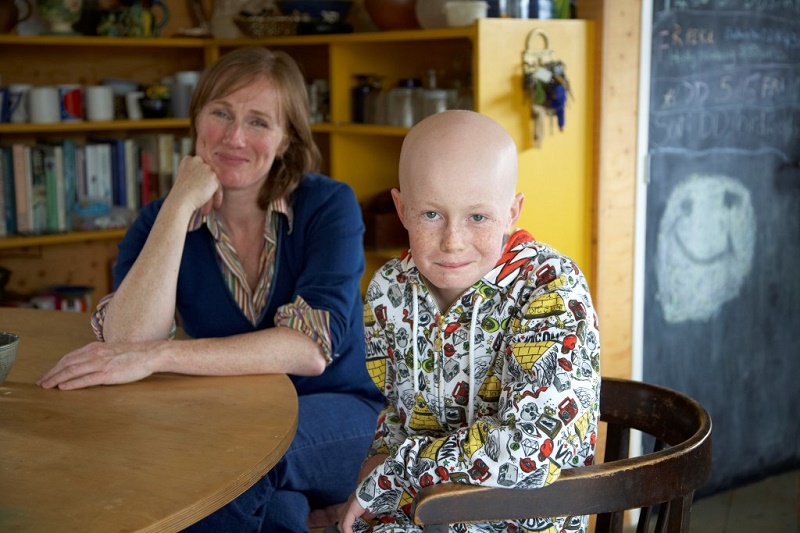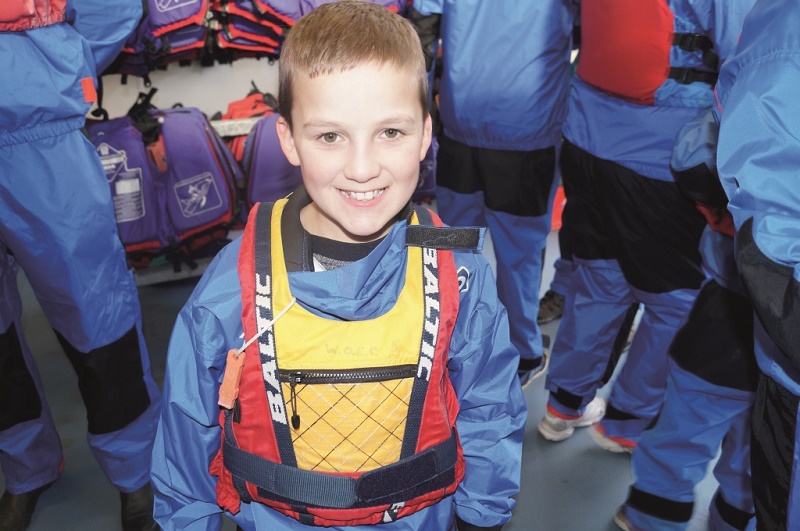Our progress
Our research funding has led to important and exciting discoveries in the battle to beat brain tumours. We know that brain tumours are complex, but every discovery brings us closer to defeating this disease. With your invaluable support, we are ready to step up the search for a cure.
Research Impact Report
Our Research Impact Report highlights the progress of pioneering research we fund and its impact on improving the quality of life and survival rates for those diagnosed with a brain tumour.
Our thanks go to everyone who gave their input during the creation of the report – from those personally affected to researchers in the field, we couldn’t have created this without your help.
Your support will continue to drive us forward to continually fund the best research across the globe, to keep reaching further to find a cure and to end this devastating disease.
Learn more about the impact of our research with our new infographic.
Download
Research Impact Report – PDF (6MB)
This report has been created with the help of independent consultancy, Fulcrum Direct, who kindly completed this work pro-bono; we are very thankful.
Improving diagnosis in adults
Projects led by Dr Paul Brennan (University of Edinburgh) and Dr Fiona Walter (University of Cambridge) are working alongside each other to identify delays in adult brain tumour diagnosis in the UK. Their research will enable The Brain Tumour Charity to design an evidence-based awareness campaign on the signs and symptoms of a brain tumour in adults to enable earlier diagnosis.
Dr Brennan and his team are using national data sources to identify factors associated with delay in presentation to primary medical care and subsequent referral. Additionally, they are looking at the impact of primary care delay on clinical management, hospitalisation and mortality.
From their findings they will develop a model to estimate the impact of reducing diagnostic delay and propose guidelines for a more effective GP referral pathway for the diagnosis of a suspected brain tumour.
Dr Walter is be using a patient-centred approach to identify which symptoms can help to make an early diagnosis of brain tumours. The team are recruiting patients for interviews to find out about their individual experiences and what their symptoms of brain tumours were leading up to diagnosis.
Improving diagnosis in children
Since the initial launch of our HeadSmart campaign in 2011, we have helped reduce the time taken to diagnose childhood brain tumours from 9.1 weeks to 6.7 weeks.
The ongoing work being undertaken at the University of Nottingham continues to evaluate the impact of the HeadSmart campaign on patient outcomes, diagnosis and referral patterns in primary and secondary care. Progress has been made throughout this study, including successfully identifying groups of patients who were at the highest risk of vision loss.

“If DD had been diagnosed more quickly, he could have been spared nine brain operations. This research and the resulting public HeadSmart campaign will save other children’s lives.”
Sacha, HeadSmart champion, whose son DD lost his life to a brain tumour in 2012, aged 16
Identifying metabolic changes in tumour cells that lead to therapy resistance
Dr Daniel Tennant and his team at the University of Birmingham have been investigating a new approach to treating grade adult gliomas of all grades. They have been specifically studying how and why energy producers in cells, known as mitochondria, change during tumour growth.
Over the last three years, Dr Tennant’s team has made some very interesting discoveries. They have found unusual ways in which mitochondria evolve and have linked this directly to a change in response to therapy. This means that it could be possible to tell whether or not a patient would respond to a particular therapy or treatment, depending on how their mitochondria have evolved.
Over the next couple of months, the team will be fine-tuning the pathway between dysfunctional mitochondria and therapy resistance, which will bring this stage of their project to an end. The next step is to ensure that these findings are incorporated into clinical decision-making.
Find out more about Dr Tennant’s research
Discovery of key growth-altering gene in pilocytic astrocytoma
A team at the University of Cambridge, led by Professor Peter Collins & Dr Suzanne Turner, have made significant findings that have enhanced our understanding of the behaviour of certain types of a childhood brain tumour, called pilocytic astrocytoma.
Their research has shown that a protein known as KIAA1549:BRAF that is present in cells, alters their shape by interacting with proteins that affect the structure of cells, including a specific protein called Vimentin.
Additionally, they have discovered that cells expressing KIAA1549:BRAF stop growing once they increase in size and touch each other, unlike cells expressing the genetic mutation BRAF V600E, who continue to grow on top of one another.
These findings have enhanced our understanding of the mechanism behind a subset of pilocytic astrocytomas and are now enabling the development of new drugs to target KIAA1549:BRAF protein specifically.

“We were shocked to realise how little is understood about childhood brain tumours. The dedication of these researchers to really understand the disease and improve diagnosis and treatments is inspiring.”
Lisa, son Iestyn was diagnosed with a pilomyxoid astrocytoma aged 6
Further funding following success of INSTINCT programme
The INSTINCT research programme led by Professor Steve Clifford integrates pioneering high grade paediatric brain tumour research programmes at The Institute of Child Health, Newcastle University and the Institute of Cancer Research to create a rigorous clinical and research network. The primary aim of this programme is to deliver improved therapies for children with high grade brain tumours.
So far the programme has been able to identify key genetic alterations in high grade brain tumours, such as medulloblastoma, that can be targeted therapeutically and can form the basis of future novel therapies.
Due to the successes of the programme, Professor Clifford and his team have been able to leverage further funds and established Europe-wide collaborations. Because of our funding the group has been able to leverage further funding from other sources such as the Medical Research Council (£2.8 million) and the DIPG collaborative (£125,000). They have also received funding for studentships such as from the EU-SATURN programme, funded by the European Commission.
Improving care and quality of life
Professor Colin Kennedy from the University of Southampton investigated how treatment for medulloblastoma and other childhood brain tumours has an impact on quality of life in survivors. The study highlighted many important issues for brain tumour survivors such as a lack of special educational needs provision and rehabilitation support.
Importantly, this research has led to changes in the way that quality of survival is assessed and has resulted in a number of clinical trials now including quality of life as a measure of success.

“I know I have a ticking time bomb in my head, so to know that scientists are able to predict when my tumour might change to a high grade one could help me plan better for my children’s future“
Vicky, diagnosed with a low grade brain tumour
